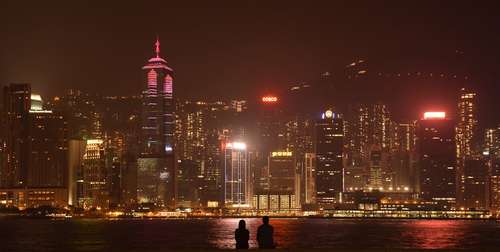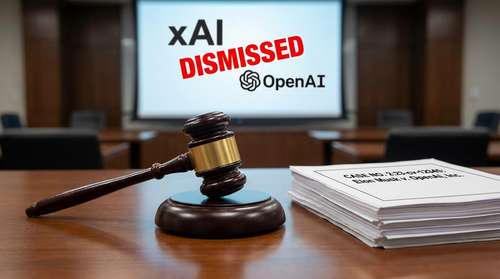The recent heated exchange at the United Nations has grabbed international headlines, and it’s easy to see why. Tensions flared when representatives from the U.S. and China faced off over the sensitive issue of the Panama Canal. The debate centered on control and influence over this crucial maritime shortcut that plays a key role in global shipping and international trade. It wasn’t just a dry policy discussion – it was a clash that underscored broader geopolitical tensions between two of the world’s most powerful nations.
As you might imagine, this isn’t an isolated incident. The Panama Canal has become almost a symbol of strategic waterways that can dictate how global shipping flows, impact infrastructure influence, and shape international relations. The U.S. has long maintained a keen interest in the canal, seeing it as a critical asset for ensuring the smooth movement of goods and security across oceans. On the other side of the debate, China’s growing investments and diplomatic maneuvers have raised alarms about the possible reordering of established power dynamics in global politics.
Background and Context
Before we dive deeper into the nitty-gritty of what happened at the U.N., let’s set the stage. The Panama Canal isn’t just a waterway; it’s an artery of global maritime trade, linking the Atlantic and Pacific Oceans and saving ships countless miles. Historically, control over the canal symbolized immense strategic weight, and this clash is the latest chapter in a long history of international debates over infrastructure influence and canal control.
This discussion at the U.N. unfolded amid rising geopolitical tension, with the U.S. accusing China of posing a threat to global trade and security. The U.S. delegation cautioned that China’s involvement might destabilize decades-old arrangements that have governed maritime trade in the region. There was a hint of urgency as voices argued over whether China’s investment was a benign economic strategy or a covert bid to reshape global politics. It’s as if an old rivalry was reawakened in a new setting, with high stakes that could affect millions of people around the globe.
Looking back, you could compare this scenario to a chess game where each move is meticulously calculated. The U.S. sees the canal as an essential checkmate in maintaining its dominance, while China appears to be positioning itself as a formidable contender on the world stage. The debate has left many wondering: in today’s interconnected world, who really holds the keys to global shipping?
Diplomatic Struggles at the United Nations
The U.N. debate quickly turned into a platform for both sides to expose their differing visions of international relations and diplomacy. The discussions were not merely academic; they held real implications for how global shipping lanes might be managed in the future. Delegates from the U.S. emphasized that any shift in control over the Panama Canal could threaten established maritime order and, ultimately, global security.
This wasn’t just about territorial possession – it was a fight over influence and ideology. The U.S. pointed to past agreements and long-standing traditions of free navigation and neutrality at the canal. Meanwhile, Chinese representatives defended their investments as mere steps to boost connectivity and foster economic progress. They insisted that their involvement was transparent and solely aimed at enhancing global shipping efficiency. It almost felt like watching a tug-of-war where each side is pulling in opposite directions, trying to maintain control over something that both consider vital.
The debate also brought to light the intricacies of modern diplomacy. With social media and instant news cycles, every word uttered at the U.N. was dissected and interpreted. For instance, a brief remark about ensuring the safety of international maritime routes quickly spiraled into heated discussions online, resonating with audiences far beyond the chamber walls. Many observers noted that this exchange is emblematic of broader challenges in China-U.S. relations—where economic ambitions and security concerns intersect in very public arenas.
Implications for Maritime Trade and Global Shipping
Stepping back to view the broader picture, the clash over the Panama Canal is not just a bilateral spat; it carries huge implications for maritime trade. To put it simply, the canal is to international shipping what a central train station is to commuters – a critical hub that keeps the world connected. Any uncertainty over the canal’s control can send shockwaves through global supply chains, affecting the price and availability of goods worldwide.
For many in the international business community, the debate is a stark reminder of how intertwined our global economy truly is. When you think about it, a change in policy regarding the canal could mean longer shipping routes, increased costs, and even delays in product delivery. This is where the strategic importance of the canal becomes almost tangible. While the U.S. fears that Chinese influence might disrupt this balance, China argues that its focus is on investing in and modernizing key infrastructure to adequately serve both commerce and diplomacy.
There are real-world consequences at stake here that extend beyond the negotiation room. Imagine a scenario where shipping companies have to constantly check if the rules of engagement are about to change. That kind of uncertainty is not just bad for business – it’s a recipe for broader instability in international relations. It’s a classic case of diplomacy wrestling with economics, as debates over the canal begin to mirror larger issues of power, trust, and influence.
Looking Ahead: Impact on Global Politics
As the U.N. debate wrapped up and representatives dispersed, the world was left with more questions than answers. What does this clash mean for the future of U.S.-China relations, and by extension, global politics? Will this be a turning point where traditional alliances start to shift? Such questions hang in the air as stakeholders around the globe watch carefully for the next move. Many experts suggest that this incident is part of a broader struggle for strategic waterways that will continue to redefine international relations.
There’s an analogy here that feels relevant: think of global politics as a finely tuned orchestra. Each country plays its part, and when one instrument falters or deviates from its tune, the entire performance is at risk. The Panama Canal is one such instrument, and its control is essential for maintaining the harmony of global shipping and security. Both the U.S. and China must navigate this delicate balance, but their differing approaches may lead to discord rather than harmony.
From a diplomatic standpoint, this clash serves as a wake-up call. It’s a bold reminder that we live in a time when infrastructure influence and strategic waterways can turn into flashpoints for larger geopolitical tension. For everyday citizens following international news, the debate is a mix of high politics and relatable impact – after all, every shipment, every product that reaches your local store, might be affected by the decisions made on these grand stages.
While the immediate future remains uncertain, one thing is clear: this isn’t just a dispute over a canal. It’s a snapshot of modern international relations, where economic ambitions, security concerns, and diplomatic strategy converge. With both sides firmly entrenched in their positions, the coming months and years may very well see more debates taking center stage in the U.N. arena and beyond.
Ultimately, as we witness these events unfold, the story of the Panama Canal debate resonates as a powerful lesson in global politics. It challenges us to think critically about the intersections of trade, security, and diplomacy. It’s a reminder that even in an era defined by economic progress and technological advances, the control of strategically important assets remains a central front in the struggle for international influence.




